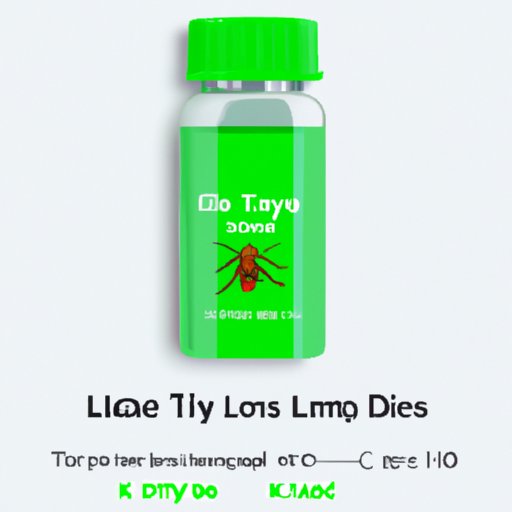
Introduction
Lyme disease, caused by a tick-borne bacteria, has been a growing problem in many parts of the world. It can cause serious complications if left untreated, but there is still no vaccine for it. This article explores the ongoing search for a Lyme disease vaccine, asking questions like how close we are to a solution and what such a vaccine might mean for the people affected.
Exploring the Search for a Lyme Disease Vaccine: A Comprehensive Review
The search for a vaccine for Lyme disease started in the 1990s, and several experimental vaccines were developed, tested, and ultimately withdrawn from the market. The challenges of creating a Lyme disease vaccine include the difficulty in identifying a specific antigen to target, the potential side effects of the vaccine, and the relatively small market for a Lyme disease vaccine. Despite these challenges, researchers have continued to work on developing a vaccine, with promising results in animal studies and some human trials.
Experts in the field say that a vaccine could be a “game-changer” for those affected by Lyme disease, offering a more effective form of prevention and a potential improvement in outcomes for those who do contract the disease.
“Hope on the Horizon” for Lyme Disease Sufferers: Understanding the Potential Impact of the New Vaccine
The most promising vaccine development work today comes from French pharmaceutical company Valneva, which received fast-track designation from the United States Food and Drug Administration in May 2021. The drug, VLA15, is currently in Phase III clinical trials and has shown efficacy in earlier phases of testing.
If approved for use, VLA15 would be the first Lyme disease vaccine on the market in over a decade.
The vaccine would be given in three doses, and studies indicate that it could offer protection against six distinct types of Lyme-causing bacteria. While it’s too early to predict how completely effective the vaccine might be, its potential to address Lyme disease as a whole makes it a significant development.
Doctors and patients alike anticipate the potential benefits of a Lyme vaccine, such as a reduction in the number of people who will become infected and a possible decrease in the severity of symptoms for those who do contract Lyme disease.
To Vaccinate or Not to Vaccinate: The Ethical Considerations of Developing a Lyme Disease Vaccine
Developing a Lyme disease vaccine raises several ethical concerns worth examining, such as whether the relatively low numbers of people affected justify the cost of producing and marketing a vaccine.
There are also concerns about the safety of the vaccine itself, as previous vaccines for Lyme disease were pulled from the market over safety issues. Nevertheless, advocates believe that current research into the vaccine offers real hope to those who could be impacted by Lyme, making it a necessary development.
The debate over whether to vaccinate against Lyme disease is ongoing, with perspectives offered from both sides of the issue. Some people believe that the benefits of a vaccine outweigh the risks, while others are concerned the vaccine could produce negative effects or that the vaccine could be misused and over-administered.
Why a Lyme Disease Vaccine is Long Overdue: A Critical Analysis of Current Situation
The number of Lyme disease cases in the United States grew nearly 300 percent between 2004 and 2016, according to the U.S. Centers for Disease Control and Prevention. Lyme disease can be debilitating and cause a range of symptoms, including fever, joint pain, and fatigue. It’s not always readily diagnosed, and people can live with chronic Lyme disease for years without realizing what they have.
In states where Lyme is more prevalent, such as Maine and Vermont, some surveys show that upwards of 5 percent of the population has contracted Lyme disease. It’s a growing public health issue that a vaccine could potentially address.
“Bitten” by Lyme Disease? Here’s What You Need to Know About the Latest Vaccine Development
If you’ve been bitten by a tick and concerned you’ve contracted Lyme disease, it’s important to speak with a medical professional promptly. The earlier Lyme disease is identified and treated, the better the potential outcomes.
It’s important to remember that the current vaccine is still in development and has not yet been approved for public use. However, health advocates say that even if a Lyme disease vaccine becomes available, it’s still important to use tick repellents and check for ticks regularly, as there are many other serious diseases besides Lyme that can be contracted through tick bites.
How a Lyme Disease Vaccine Could Revolutionize the Way We Approach Tick-Borne Illnesses
A vaccine for Lyme disease would bring important benefits to both patients and the broader public health community. A successful vaccine would prevent new cases of Lyme and improve the lives of those already impacted. Tangentially, a vaccine could reduce medical costs related to the treatment of Lyme disease and support the development of preventative measures for other tick-borne illnesses.
Conclusion
A Lyme disease vaccine could have a significant impact on public health, and the ongoing efforts to develop one are both important and encouraging. While there are certainly challenges to be met in developing a safe and effective vaccine, the potential rewards of such a vaccine would make it all worthwhile. Stay informed and hopeful as we continue to push towards a viable Lyme disease vaccine.





